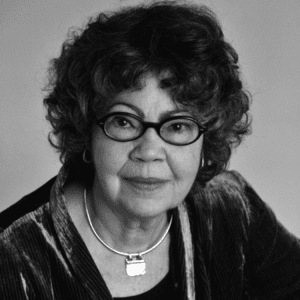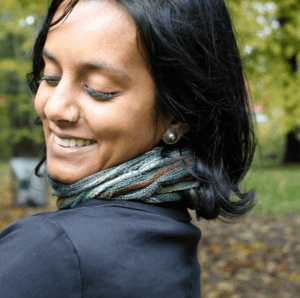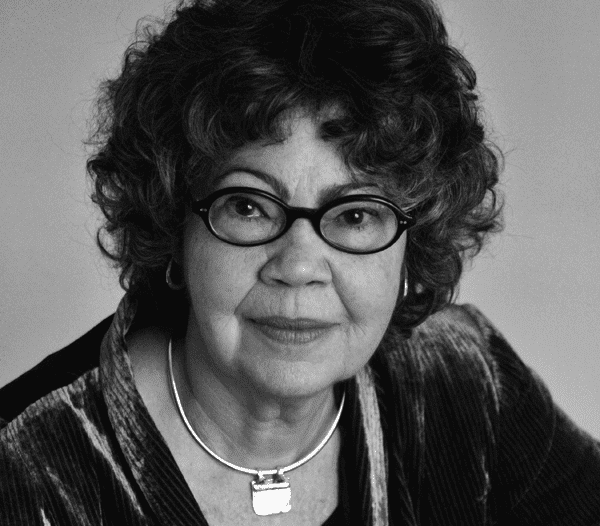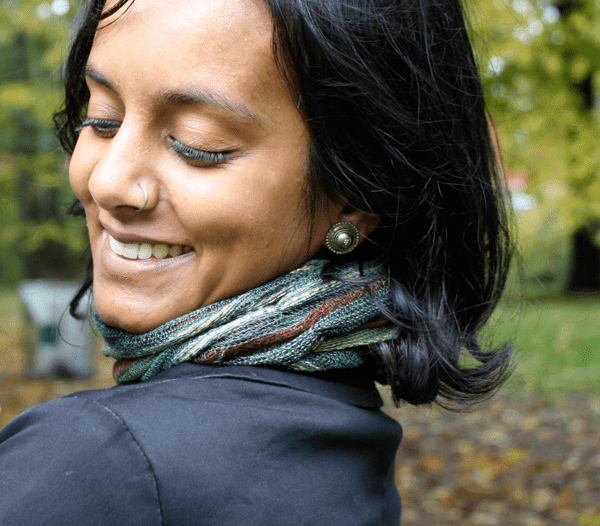I capture my eyes looking seeking So still there are words of rights Mine, yours . . . was. I had thoughts of freedom. Tales that entail stories of self-dignity not lost equality. Body of the soul over the soul in the body. So I placed my hands in a tale of seeking forgiveness and was given a chance . . . govern your choices. Entitlement to the gift of places, things and people—Like a hangman game, HUNG. For material wellbeing becomes most of our drive and we never wanna ride passenger side. Becoming disciples to the century of contemporary Babylon. So I forgave me, fool me? Lined execution to the believer of good thoughts. I fear only to the clouds and stairs . . . beyond even that. The heart lies . . . O the mind too. Situations to a pig’s world: black and blue. Dark like the skin of soul man unburied. Have you heard it? Time has tick tick tock to sounds of the march of February. Hearts of my human race broken to the belief of equity, serpents to the misconception of freedom. O but whom is I? Perhaps the watcher of the long cold knights. Let’s have our long overdue needed conversation on hypocrisy. Pictures, Pho Toes to the lost souls that fought. Fight to free murdered souls that ships held captive on waves of anger, God’s revenge. Isn’t that why my mother’s tears taste like sea salt? Peace, signs of words the deaf speak and the poor man seek. Say bye to peace . . . for where is she? What is she? I have lost sight as to what peace even is and unfamiliar of how to make my fingers stretch across such distance. Gang signs and colors, now this I know—for the sake of the mathematics of survival . . . but Peace signs? Is it in the block where the glock ring shouts? A call so many of my friends have come to worship. Cuz the rings of Bishop T D Jakes Sunday bells are too far away. And Ahlam’s recitation of Surah Rahman during her first rakat of fajr only ensure the evils of junni stay out of her home but not mine. See if Heaven had its way, this would be Hell. Good morning Jah bless . . . Rusta For I bless. So Many Troubled Souls Lost With no second change of repentance, O and Ms. Lady Liberty, let’s call her Ms. Bangkok shots My immigrant parents ran away from a beast well known to the silent cry’s behind closed doors among Africans. A life based on class status which rates your last name as your sole value in society and possibility of moving up the ranks. Where ethnic cleansing and racial tension are among those who and whom do not share the same skin tone. And the depletion of the economy is due to poor governance and its leaders rotting disease of corruption. This is why they fled and bare aims to a new battle which has isolated them from their homeland yet to become an undoable transformation that’s still not good enough for Sir Canada. It’s the S’s, R’s and L’s in my father’s British Post—secondary linguistics and the scents that fill the air from my mother’s shemma as she walks into the No Frills. We fight a new battle. Even in the’ Land of the Free’ their children still must grow accustom to fighting. Became a number or a face of stigma in these streets. I can’t even hear my screams in a city of so many broken dreams, So Many of Us Grow Accustom To Trinity. “Stop fighting” my daddy be tellin’ me. Make it easier on dear young sweet self. I suppose this means keep your head down and radical thoughts to yourself, He did not bring me here nor there for activism, sexual or fashion extermination. To him it’s all about a university education. I simply cannot fathom conformity For outer politeness makes my inwardly sick The system is something we must fight our way out of and be no longer enchained by Neither in Mama Africa or Sir Canada So I . . . double dog dare you . . . to dream. Just do it—dream Setting right there, and for a second allowing your aspirations to seem like your reality. Tucked away to a place where manifestation has its own silver lining Where destiny isn’t just a cliché from that dude trying to get your number Or a seven letter word used in a three minute infomercial as a mainstream gimmick to weightless. Dream! Now tell me . . . how was it?
Shorthand
Shifting Perspective
(Based on an exercise by Maggie Anderson, which she calls “In a dark room.”)

Find a photograph and “interrogate” it by asking and answering the questions listed below. This is my favourite exercise because it challenges you to write from different perspectives and in different voices. It will take you outside of yourself which is sometimes a good thing. You can do this exercise over and over again—especially useful when you are stuck for something to write about. Ask questions of, say, family photographs. Or old postcards. Or pictures in newspapers and magazines. You can respond in poetry or prose. Write as much or as little as you like. But try to answer all the questions. Have fun.
- Describe the photograph
- Write in the voice of someone or something in the photograph
- Write as someone or something in the photograph addressing the photographer
- Write to say something to someone you know who has not seen the photograph
- Write about the photo as the photographer
- Address someone in the photograph
- Describe what happened just before the photo was taken
- Describe what happened just after the photo was taken
- Describe what was happening outside the camera’s range just as the photo was being taken
- Write as if you found the photo 50 years after it was taken
Ancestral Poem
I My ancestors are nearer than albums of pictures I tread on heels thrust into broken-down slippers II My mother’s womb impulsed harvests perpetually. She deeply breathed country air when she laboured me. III The pattern woven by my father’s hands lulled me to sleep. Certain actions moved me so: my father planting. When my father planted his thoughts took flight. He did not need to think. The ritual was ingrained in the blood, embedded in the centuries of dirt beneath his fingernails encased in the memories of his race. (Yet the whiplash of my father’s wrath rever- berated days in my mind with the inten- sity of tuning forks. He did not think. My mother stunned wept and prayed Father Forgive Them knowing not what she prayed for.) One day I did not pray. A gloss of sunlight through the leaves betrayed me so. Abstracted me from rituals. And discarded prayers and disproven myths confirmed me freedom. IV Now against the rhythms of subway trains my heartbeats still drum worksongs. Some wheels sing freedom. The others Home. Still, if I could balance water on my head I can juggle worlds on my shoulders.
* This was published in Olive’s first poetry book, Talking of Trees.
Author of the Month: Olive Senior

Tell us about yourself.
I was born and grew up in Jamaica. I now live in Toronto, but the Caribbean still remains central to my work and I travel there frequently—especially in winter! I like to say I have the best of both worlds. I have spent virtually all of my life engaged in writing of one sort or another. I started out as a journalist and studied journalism at Carleton University. Since then, I have worked as an editor, publisher, researcher, speech writer and in recent years I have taught writing or conducted writing workshops—I have been for some years on the faculty of the Humber School for Writers. I have published 14 books so far—I write fiction, poetry, non-fiction and my second children’s picture book will be published later this year. I am also trying my hand at writing a play. Most writers tend to stick to one genre—and publishers and booksellers love that too—but I have always liked the challenge of exploring different forms of writing. People ask me how I switch from one to the other but it’s not a conscious decision—whatever holds my interest usually arrives in the form it will take—whether as poetry, prose or children’s story. So expressing myself in different genres comes naturally to me. The exception is probably my latest book—a novel called Dancing Lessons. I had previously written only short stories and novellas and I thought I was writing a short story until I realised that the narrator had taken hold and would not let go until she had fully told her story—a couple of hundred pages later! Many writers choose one genre and stick to it. It’s a question of doing what feels comfortable to you. I certainly encourage beginning writers to experiment and try new forms, new approaches. “Playing around” is a good way of finding out what you are best at. It’s good to move out of your comfort zone. You might surprise yourself.
When did you realize you had a passion for writing?
I tell people that I decided to be a writer at the age of four. I don’t know if that is true but that is the age I learned to read and fell in love with words. After that, I always seemed to have my head buried in a book, though there were not too many available when I was growing up in a remote part of Jamaica. I went to high school in the town of Montego Bay where there was a library which seemed like heaven at the time.
But my love of words and I like to think my facility as a writer came not only from the language of books but also from what is called the oral culture—the stories, the tales, the songs from the people around me in my Jamaican mountain village. As children, our big nighttime entertainment was storytelling—we had stories of Anansi, the trickster god of West Africa brought to the Caribbean, we had duppy (ghost) stories, we had traditional tales of the Grimm brothers retold Caribbean style, we had Bible stories, tales and legends of Greece and Rome and stories about local people and events.
There was a kind of rhythm to life that I also think infused the way I write. People sang at all their tasks—from washing clothes to floor cleaning, planting yam or house building so as children we grew up to those rhythms as well. When I came to write as an adult, I found that what worked best was a fusion of the two traditions I grew up with—the scribal and the oral, which also means a fusion of English which is our official language and Jamaican creole which is the informal but pervasive language of the people.
Thinking of myself as a storyteller has kept me firmly focused at all times on the idea that I am communicating to a reader out there and this holds good for everything I write—from a poem to all the entries in my Encyclopedia of Jamaican Heritage. Traditional storytelling can only happen if there is an audience present and the audience of my childhood gave immediate feedback to the teller—a story would be deemed “sweet” or satisfying if everyone enjoyed it to the end; “sour” if it was deemed boring. I am always desperately trying to avoid the latter judgement.
What pieces of writing/authors have had the greatest impact on you?
This is hard to answer because different writers have affected me at different points in my life—some because of what they had to say, others by how they say it. I have to confess though that I am still engaged with some of the writers of my youth such as Charles Dickens whom to my mind is the greatest storyteller (though he could have done with a good editor!) When I was learning to write as a teenager and young adult, I was very much shaped by the so-called English literary canon as well as the European, later by the American. My introduction to Canadian literature has come much later in my life. I think the books that have had the greatest impact in shaping me as a writer were those which first presented me with a world with which I could identify. In my early teens before there was much Caribbean literature available I found my multi-cultural world mirrored in books from the American south such as those of Truman Capote or Carson McCullers. Of course since then, there have been endless books from America, the Caribbean, Africa and elsewhere which have presented a world which includes people who are not all European (as all the books of my childhood did). Much later, I discovered Latin American writers such as Gabriel García Márquez, Mario Vargas Llosa, and above all Jorge Amado of Brazil who presented a world that was closer to my own in which life was not all rational and linear but infused with magic, the irrational and the unexplainable.
How and when do you find time to write?
I literally have to carve writing time from my daily activities which are taken up with earning a living. Sorry, folks, but writing alone will hardly provide you with a livelihood which is why most writers are also engaged in other activities. But I have no patience with people who say “I have no time to write” because I believe if writing is your imperative then somehow or other, you will find time to do it. I have got all my books written in between doing a million other things, including travelling. I have to confess though that my approach to writing depends on the type of book I am working on. My non-fiction books—such as the one I am writing now—usually require a lot of research which requires commitment to blocks of time which means planning and carving out space. But a lot of my other work (fiction, poetry) tends to get done in my head—until I can find the time to write it down. So, another confession, I am not the type of writer who writes every day. I tell myself that a lot is going on in my unconscious even when I am not sitting at my computer. Outside of non-fiction then, I tend to sit and write when the material has been processed and ready. But each of us has to develop a writing style of our own that best suits our personality and circumstances. The lesson is: stop making excuses.
What has been some of the biggest challenges you’ve faced as a writer?
The biggest challenge is what I have said above: finding the time to get it done. I wish I could just sit and write and do nothing else. Choosing to commit to writing means sacrifice and commitment. Of course like most writers, there is also the challenge of getting published, especially in a climate when the ground rules keep changing. I have been fortunate that I have managed to get my work published and noticed internationally—reviewed, written about and sometimes taught in schools and universities. But the status of a “literary writer” is different from that of a “popular” writer who is more likely to get the money and fame. I personally think there is room for all forms of writing. If you want to write, it doesn’t matter what you choose to write about—be honest about what you want to achieve and aim to be good at it. Above all, learn your craft. The best way to do this is by reading books in the genre you want to write in. Writing is language-based, so master language.
How have you changed as a writer over the years?
I hope I keep on getting better. I certainly don’t think I know everything and I am always striving to outdo myself. When I started to write, I knew nothing about process—I never had classes or writing mentors. So I am largely self-taught as are most writers I know. I had a very thorough education though that was grounded in language and I learnt to write from reading (still the best way). But I did not have a vocabulary for the craft of writing. I wrote short stories (and my first book Summer Lightning won the Commonwealth Writers Prize) but I could not have given a definition of what a “short story” was. I simply wrote intuitively. I think the great change for me has come about because once I was published I was asked to conduct writing workshops and to teach writing and talk about it. This forced me to learn all about writing techniques. I was versed in the craft of writing but I had to learn to deconstruct what I was doing and understand how it all fitted together. All of this has helped me to see how attending writing courses can help the writer learn in a short time what people like me learned over a long time by trial and error, so it can short-circuit the process. It can assist the young writer to focus on the craft and develop self-criticism, as well as confidence. Above all, it can provide the most important ingredient of all which is feedback from a trusted mentor. Over the years, I have learnt to be much more conscious of what I am doing as a writer, but whether this is a good thing or not is for readers of my work to say.
The Guestroom
If I can be honest, and when would that be possible if not now that I have your attention, I’ll admit there was a quality that set me apart from other children. It’s hard to imagine now, all these years later and with so little evidence. But if you could trust the word of my parents’ acquaintances, who needed to comment on something when I was introduced at our dinner parties, my eyes had a tendency to sparkle.
When a new pleasure was placed before me, a new story book, or a puzzle assigned to me for no other reason than that I was the only child present, it seems my eyes would light up. Then our guests would nudge one another, and from my parents’ proud and enchanted expressions, I assumed they were witnessing a special thing.
You couldn’t blame me for wanting to be a part of it, each time dropping the gift and rushing to the mirror in the foyer of our house. But from what I could tell, pushing up on tiptoe, those eyes were as dim and narrow as the front hall, where you could hear the party continuing in the other room. To be fair, a spark by nature isn’t meant to last, unless it’s coddled and can catch hold of something.
On one occasion in the dead of winter, when I was eight-years-old, we had invited the elderly couple from Winnipeg to dinner. Mr. and Mrs. Marr lived down the block, and despite the fact that they had a grown up daughter who lived in the United States, they seemed very much alone in the world. The invitation was a simple kindness that didn’t cost my mother too much effort, and the Marrs after all were a pleasant pair, though Mr. Marr was slightly absent minded. The stories he told were often beside the point, as if they were part of a conversation no one else could hear, and he paced as he told them, so that you felt compelled to trail him around the room. He was easier to keep up with than my own father, who moved quickly, always a step ahead of me.
As was the practice whenever we were having guests over, I was given my dinner early that evening. My parents were busy straightening up the house, and I was allowed to eat in front of the television. My mother put on a documentary about the solar system. I wondered how she knew I’d been thinking about stars just that week, since I hadn’t told anyone about it. When I finished eating, I climbed up onto the bench by the front window. You couldn’t make out anything in the dark sky, not any of the brightly coloured planets that were so clear to me when I closed my eyes. What I did spot was my mother’s reflection moving back and forth in the glass, her thick, sturdy arms reaching across the table to light a series of candles, which filled the window with a yellow glow and made the yard outside disappear.
The doorbell rang and the Marrs bustled through the foyer, ushering a wintery chill into the house. No one spoke out against this. My parents greeted the guests and led them into the living room, and I put on my most polite smile as I slipped down from my perch, shivering in the draft. As always, I came forward to kiss the Marrs’ frosted cheeks, warmed their hands and accept my gift. This time, it was a plush purple unicorn with a set of glittering wings. The animal would have captured the imagination of a small child, but my parents had already taught me what did and did not exist in the world. Still, I cooed at the unicorn and rocked it back and forth in my arms, and Mr. Marr hunched low and peered expectantly into my eyes. I could see that he was as disappointed as I was.
I was about to return to the window when my mother asked if I would take the couple’s coats and lay them on the guest bed, and play quietly with my new toy while the grown-ups got settled in.
It wasn’t unfair. Even if I didn’t know what to do with the unicorn, a number of other games were available to me. I could draw, for instance. I hadn’t made any pictures in some time, and my father had once told the Marrs that I had a gift. I entered the Guestroom and arranged the coats on the bed, very carefully, as if a sleeping body were tucked inside each one. It was the first time that I’d done such a thing, but then we’d never had a guest bed before that week. The coats had always been hung over the banister.
Until recently, the Guestroom had been called the Study. It had contained only a desk and a bookshelf stacked with hundreds of old issues of National Geographic that my father had bought at a garage sale one summer. On Saturday afternoons, he would sit at the desk, reading and making notes, and I would draw landscapes in my scrapbook on the floor. It was in those days that my father talked a great deal about travelling, and this is how I learned the names of the continents and their highest mountains, and the kinds of deep sea coral that had gone extinct before my time. Every so often he would peer over the edge of his magazine, or fold back its pages like giant leaves as if to study a new or undiscovered species. I’d go on colouring some jungle, but the arcing motion of my arm would take on a certain delicacy, as if I really were the creature he imagined.
The weekend before our dinner party, we had received a gift that had given the room its new name. Now jutting into the centre of the floor was a dark wood four poster bed, and facing it was a long rectangular dresser that ran along the wall beside the door. It was from the Marrs, in fact, that my parents had inherited the set. At the urging of their daughter, a chiropractor, the Marrs had bought a posturepedic bed on which the height and firmness of each side could be adjusted independently. It was strange to think that you could be just a few inches away from someone and experience a completely different sleep, but this is what the doctor had recommended.
The furniture had been in the Marr family for two generations, and as my parents hauled it down the street, with me trailing behind, Mr. Marr declared that he was happy to see it go to a good home. He said: “I’d always imagined I’d die in that bed.”
The new bed set imposed on the small room and carried a scent that seemed at odds with the rest of our house. Or maybe it was that Mrs. Marr had come by earlier that week to offer several decorative baskets filled with pungent dead flowers, which she referred to as “potpourri.” Now as I glanced about, counting the baskets along the dresser and the bed’s headboard, I couldn’t find a clear spot to deposit the unicorn. It was as out of place in the Guestroom as I was.
My father too had abandoned the space; he now took his magazines to the couch in the living room, and I was asked not to scatter my colouring pencils all over the carpet at his feet. From my new position at the kitchen table, however, it was difficult to catch his eye, and when he lay back with a series of journeys in his mind, I couldn’t be sure that he’d remember to include me.
Above the dresser was an old fashioned mirror with a wide brass rim. For the first time, I noticed that its two side panels could be adjusted so you could observe your profile as other people saw it. I stood with the stuffed toy under my arm and angled the glass back and forth in the silence of the room, trying to catch my eyes off guard—but I couldn’t find the light the Marrs had seen there. I gripped the unicorn tightly for a moment before shoving it into the top dresser drawer, holding its wings down so it would fit.
How generous were the tears that came in the end, blurring my reflection, creating two people where there had only been one. Now the fingers of my right hand felt my thin shoulder and closed around it, and my eyes filled and struggled to make out my left hand, which was fiddling with the dead flowers on the dresser top. I let the hair fall over my face and as I lifted my chin, blinked and peered through the strands, I was touched by the tender expression of the curtains, which were unable to do anything but hang there.
I climbed onto the guest bed and burrowed between the coats, rubbing my eyes hard. They would be red and puffy in the morning, and I promised to come back to the mirror and see them then.
I’d been lying down only a moment when the lights came on. Mr. Marr was standing in the doorway, his face full of confusion as he looked from the bed to the dresser.
Unable to speak, I sat up and shook my head. I wanted to tell him that this wasn’t his bedroom; he had given his things away. Instead, I pointed down the hall and fell back onto the pillow, pretending to go to sleep.
“Is it bedtime, my Annie? ” he whispered.
His feet padded softly across the room, and as he lay down beside me, the weight of his body pulled me into the centre of the bed. I rolled over the empty coats, and the sudden warmth against my side was comforting, even if it was there only because Mr. Marr had lost his bearings, and mistaken me for his own daughter.
In a few minutes, my father would venture off in search of his guest and discover him here. No one would disturb the old man—it was Mr. Marr’s bed after all. And if I remained hidden behind his mountain of a belly, we could remain there until morning, our figures huddled together as if bound by a single dream.
Emerging Author of the Month: Deepa Shankaran
Tell us about yourself.

A few relevant and not so relevant facts:
- During my 20s, I moved 13 times in the space of ten years. It was mostly hit and miss.
- In various dance productions, I have been a rabbit, a swan, a cloud, and a lovesick deer.
- Writing and women’s rights occupy equal parts of my heart. They sometimes compete, but tend to get along quite well.
- In grade six, I was a cigarette for Halloween, a walking tube of white poster board. By the end of the day, the words “don’t smoke me” were scrawled across the front, and I’m not sure the teachers made me do it.
- I once fell on the subway stairs and got a huge purple bruise on my knee. I showed it to eight people that day with a bizarre sense of pride. I suspect my writing might be motivated by the same impulse.
Tell us about the piece you’ve decided to share.
It came about slowly, with a few images—a stuffed toy, a pair of cold hands, a winter coat lying on a bed, a child peering into a three paneled mirror. In the end, it became a story about what happens when a young girl is left alone for an evening, while a dinner party continues down the hall. The piece is part of a collection of linked stories, which follow an unnamed narrator as she struggles to remake herself in a new city. She recalls the episodes from her childhood that have made this necessary.
When and why did you realize you had a passion for writing?
As a child, I collected boxes: jewelry boxes, cereal boxes, the box from our first toaster oven. They took up a lot of space in my bedroom. My mother told me I had to do something with at least one, or else throw them all out. So I cut a slit in the top of a shoe box and taped down the lid, so my notes could go in but not out. Those scraps were filled with overheard conversations, secrets from friends, things I hadn’t had the courage to say. This is how I started collecting details, and eventually building stories as a way of clearing space in the box, and also in my mind. I’m still compelled to do this now, or else the details pile up and make it difficult to move around.
What pieces of writing/authors have had the greatest impact on you?
Initially, it was to sharpen my writing skills that I went back to the classics: Chekhov, Dostoyevsky, Rilke; but now I feel at home in their company. Those works are timeless, and still have so much to say about my own daily experience. It’s surprising and comforting at the same time. They’ve left their mark on me, and I often have a jumpy 19th century voice in my head, narrating and interpreting the day.
What kind of writer do you aspire to be?
A mentor once told me that the mark of a good writer was the ability to recast ordinary moments to reveal something that hadn’t been noticed before, or put into words. I’d like to cultivate that depth of insight and originality.
How and when do you find time to write?
I try to find moments throughout the day to think about a new story or chapter. I end up writing everywhere; streetcars, park benches, coffee shops, a friend’s couch. When I need to focus, I go to the library. At the moment, I’m working part-time, so I aim to devote three full days a week to fiction. That time has become very precious to me. I also like to write every morning, for an hour or two at least, before the internet has made a mess of my intentions.




